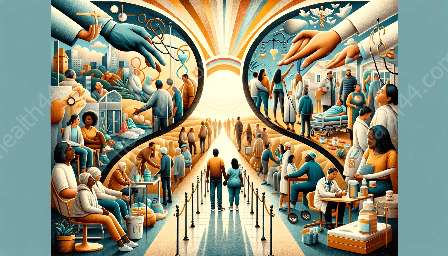Healthcare is a dynamic and rewarding field that offers a wide range of career opportunities for individuals passionate about improving the well-being of others. From doctors and nurses to medical researchers and public health professionals, the healthcare industry encompasses a diverse array of roles, each vital to the delivery of quality care and the advancement of medical knowledge. In this article, we will explore the various healthcare professions and careers, including their unique roles, educational requirements, and job outlook.
The Diverse World of Healthcare Professions
Healthcare professionals play a crucial role in providing medical care, promoting wellness, and conducting research to enhance our understanding of diseases and treatment strategies. The following are some of the key healthcare professions that make up this multifaceted industry:
- Physicians and Surgeons: Physicians, also known as doctors, diagnose and treat medical conditions and injuries. They may specialize in various fields such as internal medicine, pediatrics, surgery, or psychiatry.
- Nurses: Nurses are responsible for delivering patient care, administering medications, and providing emotional support to patients and their families. They can work in diverse healthcare settings, including hospitals, clinics, and community health centers.
- Medical Researchers: Medical researchers conduct studies to improve our understanding of diseases, develop new treatment options, and enhance overall healthcare practices.
- Pharmacists: Pharmacists are experts in medication therapy and are responsible for dispensing prescription medications, providing advice on over-the-counter drugs, and ensuring patient safety when using medications.
- Physical Therapists: Physical therapists help individuals manage pain, regain mobility, and improve their overall physical well-being through specialized exercises and treatments.
- Completion of a bachelor's degree in a relevant field, such as biology, chemistry, or healthcare administration, as a foundational step for many healthcare careers.
- Enrollment in a professional degree program, such as medical school, nursing school, or pharmacy school, depending on the desired profession.
- Participation in clinical rotations or internships to gain hands-on experience in healthcare settings.
Education and Training
The path to a successful healthcare career typically involves extensive education and training. The specific requirements vary based on the chosen profession, but generally involve the following steps:
Job Outlook and Career Advancement
The healthcare industry continues to experience strong demand for skilled professionals, driven by factors such as an aging population, advancements in medical technology, and the expansion of healthcare services. As a result, individuals pursuing careers in healthcare can expect favorable job prospects and opportunities for career growth. Some healthcare professions are projected to experience particularly high demand in the coming years, offering stable employment and potential for advancement.
Furthermore, the healthcare field offers numerous opportunities for professional development and specialization. Advanced practice certifications, specialized training programs, and advanced degrees can open doors to leadership roles, research positions, and specialized clinical practice areas.
Conclusion
Embarking on a career in healthcare can lead to a fulfilling and impactful journey, where professionals have the opportunity to make a meaningful difference in the lives of individuals and communities. From direct patient care to groundbreaking research, healthcare careers offer diverse paths for personal and professional growth while contributing to the greater good of society.



















